|
March 18, 2017
Debóra Kovács: Death penalty – do or do not?
|
March 15, 2017
Violetta Vaski: Euroscepticism and the current situation triggered by Brexit
|
July 22, 2016
Abdulhamid Gunda: Turkey coup attempt: who failed, who succeeded?
|
June 1, 2016
Aldoreza Prandana: Discrimination and sexual assaults on women and gender equality
|
May 2, 2016
Hannah Cartwright: The American election - a country in political crisis
The American campaigns leading up to the Republican and Democratic National Conventions are not just a hot topic in America, or among political pundits, the campaigns have become an international spectator sport. The garish and cartoonish personalities of the candidates, the outlandish accusations and arguments, and the complicated and undemocratic nature of the delegates and super delegates has piqued the interest of the entire world.
|
April 14, 2016
Aldoreza Prandana: Problems with Gender Stereotypes
Sexual Identity is often confused with ideas of traditional "masculinity
or femininity", or gender stereotypes, as definitions. The premise comes
from that men are [supposed to be] masculine and women are [supposed to
be] feminine. It is problematic when men and women who do not fit into
their ‘assigned’ sexual identities are seen as less of a
man/woman/person.
|
August 1, 2015
Marta Vidal: ISIS: What should we call the
self-proclaimed Islamic State?
|
July 1, 2015
Alexander Soloviov: Female
circumcision practiced in Russian Federation
|
August 16, 2014
Lara Elena Kadegge:
Bolivia’s child
labour law: a violation of human rights or an economic issue?
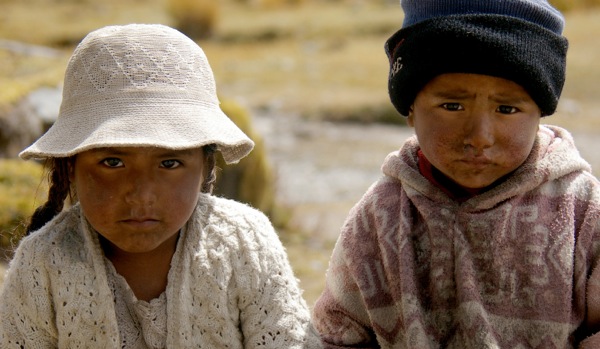 Expectedly,
Bolivia’s decision to legalise child labour from an early age of 10, has
caused an outcry, not only amongst various agencies campaigning for
children’s rights, but also amongst journalists and readers. The first
reaction, which is also a personal experience, is therefore critical,
unpleased, expressing incomprehension, disagreement and likely anger
with the decision and the Bolivian government.
Expectedly,
Bolivia’s decision to legalise child labour from an early age of 10, has
caused an outcry, not only amongst various agencies campaigning for
children’s rights, but also amongst journalists and readers. The first
reaction, which is also a personal experience, is therefore critical,
unpleased, expressing incomprehension, disagreement and likely anger
with the decision and the Bolivian government.
|
August 8, 2014
Lili Kunfalvi:
Slum tourism: a
controversial and unique entertainment
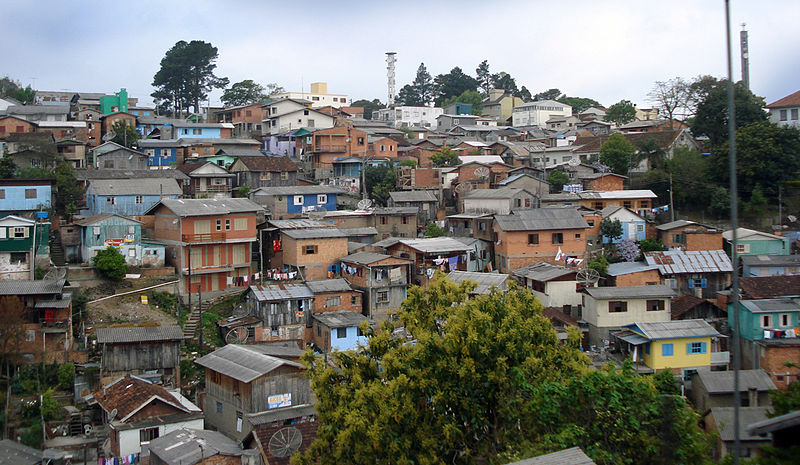 Most
travel agencies are promising to take you to worldwide famous places,
seaside resorts with azure blue water, and other locations where you can
forget about the struggles of everyday life. There are agencies,
however, that invite you to something different: to slums. Recently,
there are more and more tour companies that are organizing trips to
impoverished areas, where visitors can closely experience the life of
the poor.
Most
travel agencies are promising to take you to worldwide famous places,
seaside resorts with azure blue water, and other locations where you can
forget about the struggles of everyday life. There are agencies,
however, that invite you to something different: to slums. Recently,
there are more and more tour companies that are organizing trips to
impoverished areas, where visitors can closely experience the life of
the poor.
|
August 1, 2014
Lara Elena Kadegge:
The Global Peace
Index 2014 – highlights and criticism
|
July 25, 2014
Lara Elena Kadegge:
Dashed hopes:
World Cup defeat and depression in Latin America
|
July 22, 2014
Lili Kunfalvi:
Legal
discrimination against native women in Canada
|
July 15, 2014
Lara Elena Kadegge:
Public diplomacy
|
July 9, 2014
Lara Elena Kadegge:
The Politics
behind the World Cup – Brazil
|
April 14, 2014
Emese Embersits:
Ukraine: buffer
zone of Russian and Western interests?
|
March 18, 2014
Eszter Balogh:
Headscarf
controversy in Europe
|
February 27, 2014
Ágnes Plank:
Why the
Government of Kenya accuses the United States?
|
January 20, 2014
Zuzana Balcová:
EU legal fight
against human trafficking
|
December 13, 2013
Endre András Kozma:
North Korea -
the Aggressor or the subject of aggression?
|
November 20, 2013
Zuzana Balcová:
Contemporary anti-semitism
|
November 17, 2013
Ágnes Plank:
Deepening cooperation of China and
the ASEAN countries
|
October 24, 2013
Ágnes Plank: Pakistani
activist girl gained a human right prize
|
October 1, 2013
Márton István
Vajda:
Side notes to the Chinese-Japanese situation
|
August 25, 2013
Eszter
Balogh:
Cooperation is
possible
|
August 23, 2013
Szabolcs Vörös:
Mideast talks in Jerusalem: odds and prospects
|
August 21, 2013
Noémi Radnai:
Life of a refugee - understanding more
|
August 9, 2013
Eszter
Balogh:
Modern piracy
|
August 1, 2013
Szabolcs Vörös: The
Snowden-case: facts & analysis
|
July 31, 2013
Márton István
Vajda: The Chinese Great Tour
• Culture • Society • Economics • Security • International Relations • Politics • Human Rights •



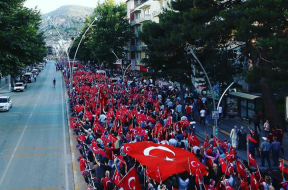
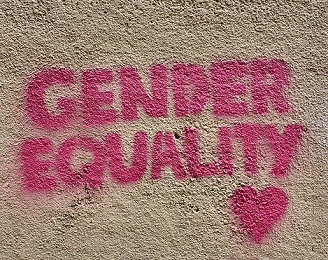
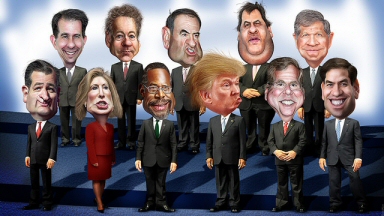

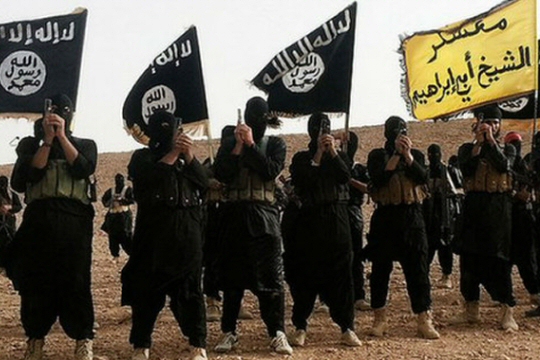

 The
fact that the world is becoming less peaceful is not a nice one. People
would try to challenge this fact by saying that we are living in the
most peaceful century of human history and that the most war-prone zone
of past times, the European Union, as we know it today, has developed
into a paradigm of peacefulness and mutual cooperation between former
hostile nations. Yet, according to the Institute for Economics and
Peace, there are indisputable indicators that there is in fact less
peacefulness in our world today than there was a decade ago.
The
fact that the world is becoming less peaceful is not a nice one. People
would try to challenge this fact by saying that we are living in the
most peaceful century of human history and that the most war-prone zone
of past times, the European Union, as we know it today, has developed
into a paradigm of peacefulness and mutual cooperation between former
hostile nations. Yet, according to the Institute for Economics and
Peace, there are indisputable indicators that there is in fact less
peacefulness in our world today than there was a decade ago. What
followed was the World Cup blues. The humiliating public defeat of the
two Latin American giants Brazil and then Argentina not only unfolded
old rivalries between the nations, but also revealed two severely
troubled economies; a fact that had been covered up by the euphoric
atmosphere around the World Cup in the last months.
What
followed was the World Cup blues. The humiliating public defeat of the
two Latin American giants Brazil and then Argentina not only unfolded
old rivalries between the nations, but also revealed two severely
troubled economies; a fact that had been covered up by the euphoric
atmosphere around the World Cup in the last months. Legal
and sexual discrimination against Native American people has always been
strong in Canada. However, it is Native American women who belong to one
of the most marginalized groups in the country. Radically saying, the
government managed to create a social system in which indigenous women
are at the bottom. The strongly discriminating Canadian Indian Act of
1951 provided the basis for this social hierarchy.
Legal
and sexual discrimination against Native American people has always been
strong in Canada. However, it is Native American women who belong to one
of the most marginalized groups in the country. Radically saying, the
government managed to create a social system in which indigenous women
are at the bottom. The strongly discriminating Canadian Indian Act of
1951 provided the basis for this social hierarchy. The
introduction of a new ambassador to a host country is often a matter of
delicacy. Public diplomacy can be used in various ways to add to the
first positive impression, such as in the example of Caroline Kennedy,
who was appointed last year as the first female US ambassador to Japan.
The
introduction of a new ambassador to a host country is often a matter of
delicacy. Public diplomacy can be used in various ways to add to the
first positive impression, such as in the example of Caroline Kennedy,
who was appointed last year as the first female US ambassador to Japan. Sven-Göran
Eriksson, the former manager of the national team of England, once said:
“There is more politics in football than in politics.” No global
tournament demonstrates this better than the ongoing World Cup in
Brazil. In the close relationship between football and politics, the
stage is in many ways used for propaganda, whereas the audience is
supposed to sit back and enjoy the game. Luckily, not everyone turns a
blind eye on what is going on behind the scenes.
Sven-Göran
Eriksson, the former manager of the national team of England, once said:
“There is more politics in football than in politics.” No global
tournament demonstrates this better than the ongoing World Cup in
Brazil. In the close relationship between football and politics, the
stage is in many ways used for propaganda, whereas the audience is
supposed to sit back and enjoy the game. Luckily, not everyone turns a
blind eye on what is going on behind the scenes.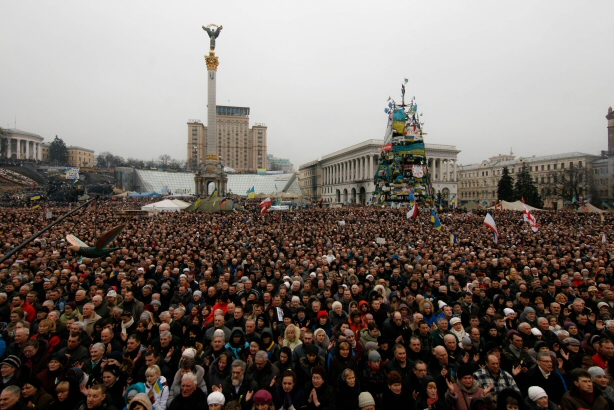 The
ongoing debate about Ukraine’s and Crimea’s future is probably still far
from a closure. The biggest turmoil may be over on the streets of Kiev
but the game for the great power’s interests in the region is still far
from its end. Not only Russia and the Western powers, namely the USA and
the European Union, have been stressing their different opinions about
the turbulent events in Ukraine, but also the international community
has been paying great attention to the events in the region.
The
ongoing debate about Ukraine’s and Crimea’s future is probably still far
from a closure. The biggest turmoil may be over on the streets of Kiev
but the game for the great power’s interests in the region is still far
from its end. Not only Russia and the Western powers, namely the USA and
the European Union, have been stressing their different opinions about
the turbulent events in Ukraine, but also the international community
has been paying great attention to the events in the region.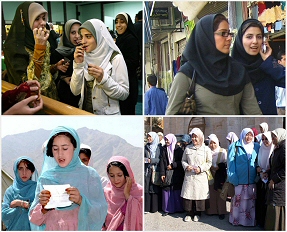 In
2004 France’s National Assembly banned the wearing of headscarf in
public schools. Even though the new regulation applied to every
religious symbol – such as the Jewish kippah or the Christian crucifix –
it concerned most of Europe’s Muslim community. Moreover, the law was
followed by another one in 2011, prohibiting the veils that cover the
face. Later more countries like Belgium or even Turkey imposed similar
restrictions.
In
2004 France’s National Assembly banned the wearing of headscarf in
public schools. Even though the new regulation applied to every
religious symbol – such as the Jewish kippah or the Christian crucifix –
it concerned most of Europe’s Muslim community. Moreover, the law was
followed by another one in 2011, prohibiting the veils that cover the
face. Later more countries like Belgium or even Turkey imposed similar
restrictions.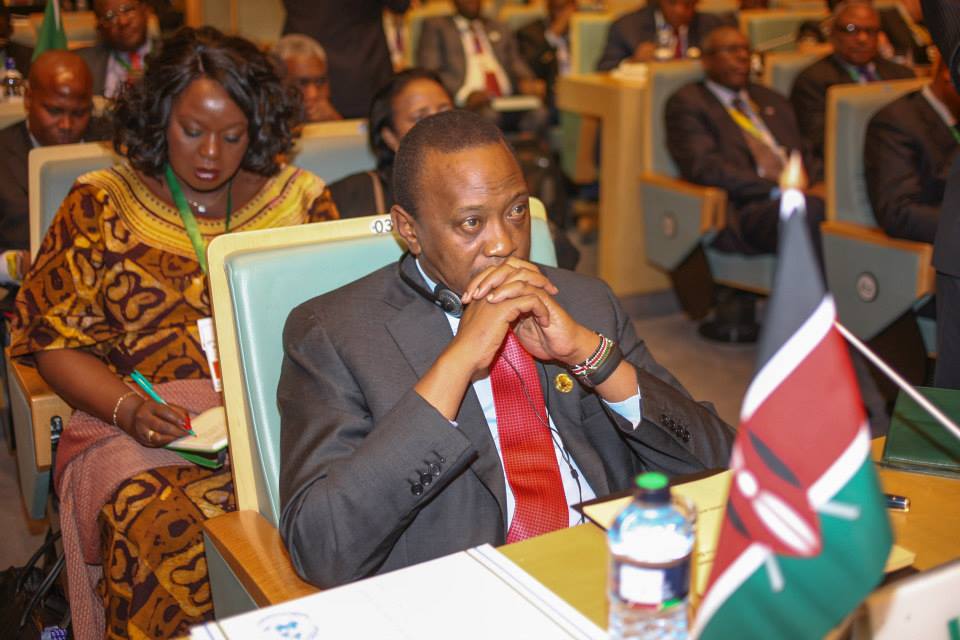 The
Government of Kenya has accused the United States of America of being
provided financial support to the organisers of the Kenyan bloody
demonstration held on 13 February 2014. According to the Secretary
General of the Kenyan Safety Cabinet, Francis Kimemia, an American
developmental agency called USAID financed the anti-government
demonstrations in Nairobi in February.
The
Government of Kenya has accused the United States of America of being
provided financial support to the organisers of the Kenyan bloody
demonstration held on 13 February 2014. According to the Secretary
General of the Kenyan Safety Cabinet, Francis Kimemia, an American
developmental agency called USAID financed the anti-government
demonstrations in Nairobi in February. Migration
has always been part of Europe’s history. It is a social phenomenon that
has largely influenced the outlook of the present-day European Union.
People from or to Europe have migrated because of various reasons
including poverty, oppression, discrimination, persecution, war, natural
disasters, unemployment, vision of better living conditions, etc. We can
assume, that particularly in recent decades, migration in Europe has
mostly been seen in the form of immigration into Western European states
from poorer Eastern or South-eastern parts of Europe, Middle East or
developing African countries.
Migration
has always been part of Europe’s history. It is a social phenomenon that
has largely influenced the outlook of the present-day European Union.
People from or to Europe have migrated because of various reasons
including poverty, oppression, discrimination, persecution, war, natural
disasters, unemployment, vision of better living conditions, etc. We can
assume, that particularly in recent decades, migration in Europe has
mostly been seen in the form of immigration into Western European states
from poorer Eastern or South-eastern parts of Europe, Middle East or
developing African countries.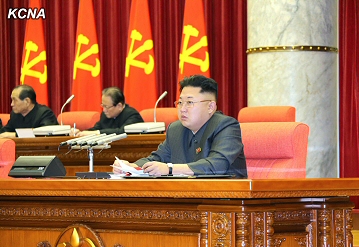 Over
the past few years, the Western media has had a tendency to portray the
Democratic People’s Republic of Korea as a country that seriously
endangers global security. What Western newswriters keep forgetting to
demonstrate, however, is the severity of the political and military
pressure Kim Jong-un and his nation have been under and the lack of
reality behind the implied North Korean threat.
Over
the past few years, the Western media has had a tendency to portray the
Democratic People’s Republic of Korea as a country that seriously
endangers global security. What Western newswriters keep forgetting to
demonstrate, however, is the severity of the political and military
pressure Kim Jong-un and his nation have been under and the lack of
reality behind the implied North Korean threat. The
anti-semitism has accompanied the history of Jewish people constantly
since the Jewish nation’s creation. Basically no other nation has
experienced so many hardships than the Jews, who throughout history had
so many times become “uncomfortable citizens” for the rest of the
society, victims of various absurd accusations, prejudices,
discrimination, persecution and organized pogroms. However, despite of
multi-generational oppression, the Jews managed to maintain their
specific identity even to this day.
The
anti-semitism has accompanied the history of Jewish people constantly
since the Jewish nation’s creation. Basically no other nation has
experienced so many hardships than the Jews, who throughout history had
so many times become “uncomfortable citizens” for the rest of the
society, victims of various absurd accusations, prejudices,
discrimination, persecution and organized pogroms. However, despite of
multi-generational oppression, the Jews managed to maintain their
specific identity even to this day.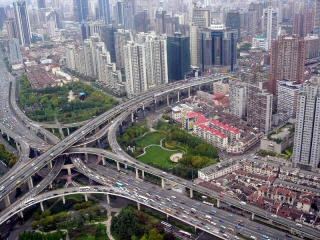 A meeting of Southeast Asian leaders was organized on the 11th of
October, 2013 in Brunei, where the main topic was the economic and
political cooperation between China and the ASEAN countries. The
increasing presence of China in the region could challenge the military
and economic interests of the United States.
A meeting of Southeast Asian leaders was organized on the 11th of
October, 2013 in Brunei, where the main topic was the economic and
political cooperation between China and the ASEAN countries. The
increasing presence of China in the region could challenge the military
and economic interests of the United States.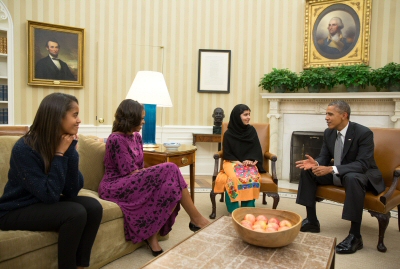 The Pakistani human rights activist girl, Malala Yousafzai, who was shot
in head by Taliban soldiers because of her activist pursuits, received
the European Union’s Sakharov human rights prize.
The Pakistani human rights activist girl, Malala Yousafzai, who was shot
in head by Taliban soldiers because of her activist pursuits, received
the European Union’s Sakharov human rights prize.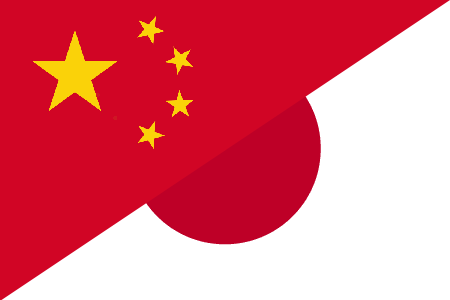 As
another term begins in Japan for Abe Shinzo and his party, Chinese
leaders reaffirm their opinions on the current “borderlands issues”
affecting the country and its neighbors. China in the last few decades
adopted a way of executing military operations with the intention of
extorting political outcomes from targeted countries. This is a core
initiative in Chinese foreign policy when it is about political messages
and influence.
As
another term begins in Japan for Abe Shinzo and his party, Chinese
leaders reaffirm their opinions on the current “borderlands issues”
affecting the country and its neighbors. China in the last few decades
adopted a way of executing military operations with the intention of
extorting political outcomes from targeted countries. This is a core
initiative in Chinese foreign policy when it is about political messages
and influence.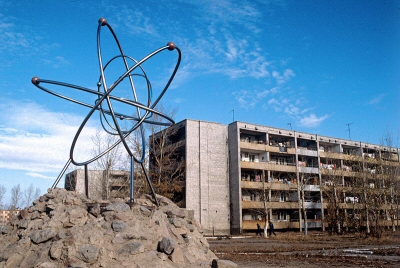 The
Cold War has already ended but when the USA and Russia work together on
something, the world still gets suspicious. The political trust still
hasn’t returned to the relations of these two countries, but as some
recent events showed, cooperation for good purposes is still possible.
The
Cold War has already ended but when the USA and Russia work together on
something, the world still gets suspicious. The political trust still
hasn’t returned to the relations of these two countries, but as some
recent events showed, cooperation for good purposes is still possible. US
Secretary of State, John Kerry’s efforts to renew talks between Israel
and Palestine have shown some results recently, at least in achieving
the two sides’ willingness to negotiate with each other. After a
trilateral meeting in Washington in July, the parties sat down for the
first session of a 9-month-long talks series in Jerusalem in August. The
US would like to see a resolution after the 9 months are over, which
would establish two states with clear borders. However the issue of
peace-building in the Middle East is rather complicated and holds out
little hope.
US
Secretary of State, John Kerry’s efforts to renew talks between Israel
and Palestine have shown some results recently, at least in achieving
the two sides’ willingness to negotiate with each other. After a
trilateral meeting in Washington in July, the parties sat down for the
first session of a 9-month-long talks series in Jerusalem in August. The
US would like to see a resolution after the 9 months are over, which
would establish two states with clear borders. However the issue of
peace-building in the Middle East is rather complicated and holds out
little hope.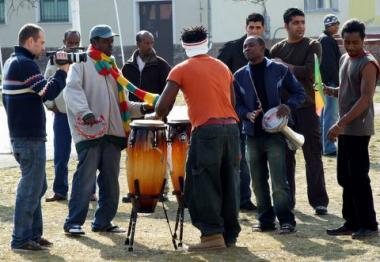 Violence
against the ones in need is on the rise, and asylum seekers are no
exception. Now that Syria is in the midst of a refugee crisis as a
result of the war, the topic receives focused attention. Governments
have to deal with an increasing number of illegal migrants and asylum
claims while non-governmental and international organizations constantly
pressure them to provide better circumstances and faster administration.
Violence
against the ones in need is on the rise, and asylum seekers are no
exception. Now that Syria is in the midst of a refugee crisis as a
result of the war, the topic receives focused attention. Governments
have to deal with an increasing number of illegal migrants and asylum
claims while non-governmental and international organizations constantly
pressure them to provide better circumstances and faster administration.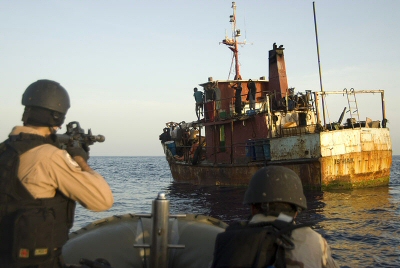 Modern
movies and books have romanticized the adventurous life of pirates. In
these stories they live on boats, rarely see land and are loyal towards
each other and the Rules of the Sea. The Golden Age is gone and nowadays
the truth couldn’t be any more different. Every year in the poorest
regions more and more violent and brutal attacks are committed by modern
pirates and the rest of the world seems to do nothing effective with it.
Modern
movies and books have romanticized the adventurous life of pirates. In
these stories they live on boats, rarely see land and are loyal towards
each other and the Rules of the Sea. The Golden Age is gone and nowadays
the truth couldn’t be any more different. Every year in the poorest
regions more and more violent and brutal attacks are committed by modern
pirates and the rest of the world seems to do nothing effective with it. Edward
Snowden is on the run through the globe. Arriving in Moscow in June, it
is doubtful whether his journey will continue. Revealing top-secret data
of US intelligence agency, NSA he is highly wanted by the
Obama-administration. As a matter of fact there is no extradition treaty
existing between the two superpowers, so Putin refuses to hand over
Snowden to the US. The scandal is extremely embarrassing for the Unites
States, not to mention the serious costs, it will inflict on the
government.
Edward
Snowden is on the run through the globe. Arriving in Moscow in June, it
is doubtful whether his journey will continue. Revealing top-secret data
of US intelligence agency, NSA he is highly wanted by the
Obama-administration. As a matter of fact there is no extradition treaty
existing between the two superpowers, so Putin refuses to hand over
Snowden to the US. The scandal is extremely embarrassing for the Unites
States, not to mention the serious costs, it will inflict on the
government.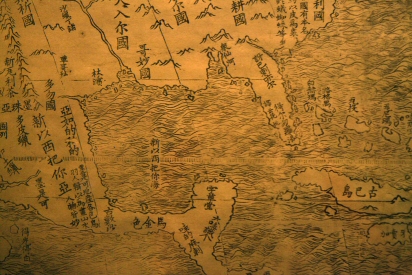 As
the rest of the world is in a downhill process, China – the sleeping
dragon – slowly emerges from its slumber. As a result of the decades
long rising of Chinese economy today we are at a point of no return:
China has amassed such influence in the World that it cannot be
neglected anymore. This entry tries to reveal details of the leadership
and attitude change in China.
As
the rest of the world is in a downhill process, China – the sleeping
dragon – slowly emerges from its slumber. As a result of the decades
long rising of Chinese economy today we are at a point of no return:
China has amassed such influence in the World that it cannot be
neglected anymore. This entry tries to reveal details of the leadership
and attitude change in China.